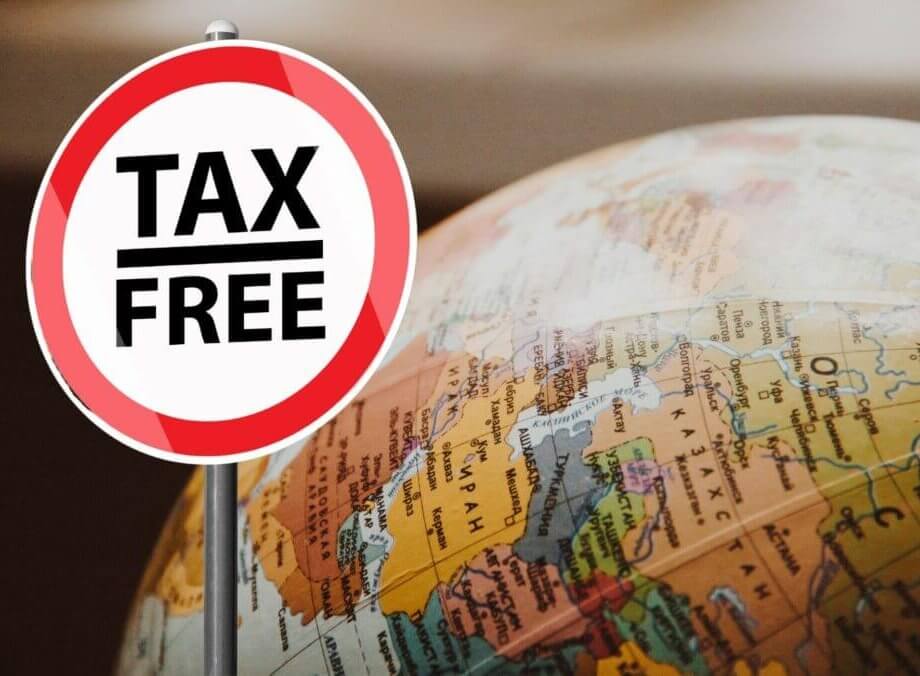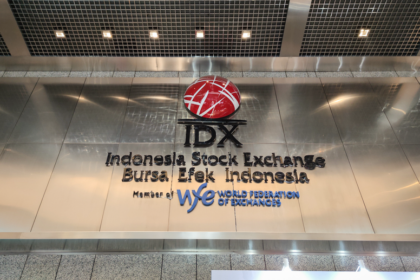Why Tax-Free Countries Are Attracting Expats in 2024
In an era of rising global mobility and shifting tax policies, the search for affordable, tax-free destinations has become a top priority for many expatriates. Whether motivated by the desire to maximize income, reduce living costs, or simply enjoy a new lifestyle, expats are increasingly looking beyond traditional Western hubs to countries that offer zero personal income tax and a lower cost of living. Recent research by international insurance firm William Russell, supported by analysis from major news outlets and expat resources, has identified the most affordable tax-free countries for expats to relocate to in 2024. This article explores the findings, the methodology behind the rankings, and the broader context driving this global trend.
- Why Tax-Free Countries Are Attracting Expats in 2024
- How Are the Cheapest Tax-Free Countries Ranked?
- Top 5 Most Affordable Tax-Free Countries for Expats
- Other Notable Tax-Free Destinations
- Why Are Expats Flocking to Tax-Free Countries?
- Case Study: Living in Belize – A Tax-Friendly Alternative
- What Should Expats Consider Before Moving?
- Real Estate Investment: A Key Driver for Expats
- In Summary
How Are the Cheapest Tax-Free Countries Ranked?
The William Russell report, widely cited by Euronews and Expat Network, uses a comprehensive methodology to determine the most affordable tax-free countries for expats. The ranking considers several key factors:
- Cost of one-way economy flights from London and New York
- Cost per square metre to buy an apartment
- Monthly rent for an apartment
- Monthly utility bills
- Average monthly living costs for a single person
- Average monthly net salary
Each country receives a “relocation score” out of 10, reflecting its overall affordability for expats. The data is sourced from platforms like Google Flights, Numbeo, and Trading Economics, ensuring a broad and up-to-date perspective on real-world costs.
Top 5 Most Affordable Tax-Free Countries for Expats
The 2024 ranking is dominated by Gulf Cooperation Council (GCC) countries, with Oman, Kuwait, Bahrain, and the United Arab Emirates (UAE) taking the top four spots. Brunei rounds out the top five. Here’s a closer look at what makes these destinations stand out:
1. Oman: The Most Affordable Tax-Free Haven
Oman leads the list with a relocation score of 7.92 out of 10. The country offers the lowest costs for both purchasing and renting apartments, with average monthly rents around €439 and purchase prices at just €108 per square metre. Monthly living expenses for a single person are approximately €699, with utility bills adding only €96. The average net salary is €2,051, leaving expats with a significant surplus after covering essential costs.
Flights to Muscat, Oman’s capital, are also relatively affordable, costing about €214 from London and €464 from New York. These factors combine to make Oman an attractive destination for expats seeking both tax advantages and a manageable cost of living.
2. Kuwait: Low Costs and High Surplus Income
Kuwait ranks second with a relocation score of 6.49. The country is notable for its low monthly living costs (€720) and utility bills (€45), as well as affordable rent averaging €721 per month. With an average net salary of €2,552, expats in Kuwait can expect a monthly surplus of over €1,000 after covering basic expenses.
Flights to Kuwait are also accessible, with one-way tickets from London starting at £150 and from New York at £623. The combination of high salaries and low living costs makes Kuwait a strong contender for those seeking a tax-free lifestyle.
3. Bahrain: Affordable Real Estate and Living Costs
Bahrain secures third place with a relocation score of 6.36. The country is the second cheapest for apartment purchases (€161 per square metre) and offers moderate monthly living costs (€788) and utility bills (€116). Average rent is €721, and the net salary is just under €2,000, leaving a surplus of €302 after essential expenses.
Bahrain’s appeal is further enhanced by its vibrant expat community and strategic location in the Gulf region.
4. United Arab Emirates: High Salaries and Modern Living
The UAE, particularly cities like Dubai and Abu Dhabi, is a magnet for expats due to its zero income tax, modern infrastructure, and cosmopolitan lifestyle. With a relocation score of 5.84, the UAE offers average monthly living costs of €893 and rents around €945. The average net salary is approximately €3,232, resulting in a surplus of €1,237 after covering rent, utilities, and living expenses.
Dubai’s real estate market is especially attractive for investors, offering high rental yields and a range of property options. The UAE’s “golden visa” program also makes it easier for investors and skilled professionals to obtain long-term residency.
5. Brunei: Low Rent and Living Costs in Southeast Asia
Brunei, a small but wealthy nation in Southeast Asia, ranks fifth with a relocation score of 5.58. The country is the second cheapest for renting an apartment (€396 per month) and ties with Kuwait for the second most affordable monthly costs and utility bills. The average net salary is €1,381, and flights to the capital, Bandar Seri Begawan, cost €776 from London and €1,018 from New York.
Brunei’s low population and stable economy make it a peaceful and affordable option for expats seeking a tax-free lifestyle in Asia.
Other Notable Tax-Free Destinations
Beyond the top five, several other countries offer tax-free living, though often at a higher cost or with unique challenges:
- Maldives: Known for its luxury resorts, the Maldives ranks sixth. While rent and living costs are relatively low, the average salary is also modest, making it less attractive for those seeking surplus income.
- Qatar: Another Gulf nation, Qatar offers high salaries and modern amenities but has higher real estate costs than its neighbors.
- Bahamas, Monaco, Cayman Islands, Bermuda, and Vanuatu: These countries are often associated with luxury and exclusivity. While they offer zero income tax, the cost of living and real estate can be prohibitively high for most expats.
Why Are Expats Flocking to Tax-Free Countries?
The appeal of tax-free countries extends beyond just saving on income tax. Several broader trends are driving the surge in expat relocations to these destinations:
- Rising Taxes in Traditional Hubs: Countries like the UK have recently increased taxes on high earners and abolished favorable regimes for non-domiciled residents. According to Moneyweek, this has led to a record outflow of wealthy individuals seeking more favorable tax environments.
- Golden Visa and Investment Programs: Many tax-free countries, especially in the Gulf and Caribbean, offer residency or citizenship in exchange for investment in real estate or local businesses. The UAE’s golden visa, for example, has attracted thousands of millionaires in recent years.
- Real Estate Opportunities: As highlighted by House Beautiful, investing in property abroad can provide both a home and a source of rental income, especially in emerging markets with growing tourism sectors.
- Lifestyle and Climate: Many tax-free countries offer warm climates, modern amenities, and vibrant expat communities, making them attractive for retirees, digital nomads, and families alike.
Case Study: Living in Belize – A Tax-Friendly Alternative
While not in the top 10 of the William Russell ranking, Belize is often cited as a tax-friendly destination for expats, especially retirees. According to Nomad Capitalist, Belize offers several advantages:
- English is the official language, easing integration for many expats.
- Low or zero taxes on foreign income, capital gains, and corporate profits.
- Affordable cost of living, with monthly expenses for a couple ranging from $1,500 to $2,000.
- Residency options through investment or the Qualified Retired Persons Incentive Program (QRP).
However, Belize also presents challenges, such as limited healthcare infrastructure and the need for caution regarding safety in certain areas. Expats are advised to research thoroughly and consider their personal needs before relocating.
What Should Expats Consider Before Moving?
While the prospect of living tax-free is appealing, experts caution that expats should look beyond headline figures. Ross Irvine, Finance Director at William Russell, advises:
“So that you are able to safeguard your lifestyle in the event of incapacity to work due to injury or illness, it is recommended that you purchase international income protection.”
Other key considerations include:
- Healthcare: Not all tax-free countries offer high-quality medical care. Expats may need international health insurance or plan for travel to nearby countries for treatment.
- Legal and Residency Requirements: Some countries require significant investment or have strict residency rules. It’s essential to understand visa options and long-term legal obligations.
- Cost of Living vs. Salary: While some countries offer high salaries, others may have lower average incomes, affecting the real surplus available after expenses.
- Quality of Life: Factors such as climate, safety, infrastructure, and community can greatly impact the expat experience.
Real Estate Investment: A Key Driver for Expats
For many expats, purchasing property is both a lifestyle choice and a financial strategy. Countries like the UAE, Portugal, and Spain offer “golden visa” programs that grant residency to foreign property buyers. In the Gulf, real estate markets in Dubai and Abu Dhabi are particularly attractive due to high rental yields and ongoing infrastructure development.
In emerging markets like Belize, Costa Rica, and Colombia, property prices remain relatively low, and foreign ownership is often encouraged. These destinations appeal to retirees and digital nomads seeking affordable homes in scenic locations, as well as investors looking for long-term appreciation and rental income.
In Summary
- Oman, Kuwait, Bahrain, UAE, and Brunei are the top five most affordable tax-free countries for expats in 2024, according to William Russell’s comprehensive relocation score.
- Key factors in the ranking include flight costs, real estate prices, rent, utilities, living expenses, and average salaries.
- Gulf countries dominate the list due to their combination of zero income tax, high salaries, and relatively low living costs.
- Other tax-free destinations like the Maldives, Qatar, Bahamas, Monaco, and the Cayman Islands offer unique advantages but may have higher living costs or lower surplus income.
- Rising taxes in traditional expat hubs are driving more people to seek tax-free alternatives, with golden visa programs and real estate investment playing a major role.
- Expats should consider healthcare, legal requirements, cost of living, and quality of life before relocating.
- Real estate investment is a key motivator for many expats, offering both lifestyle benefits and financial returns.












